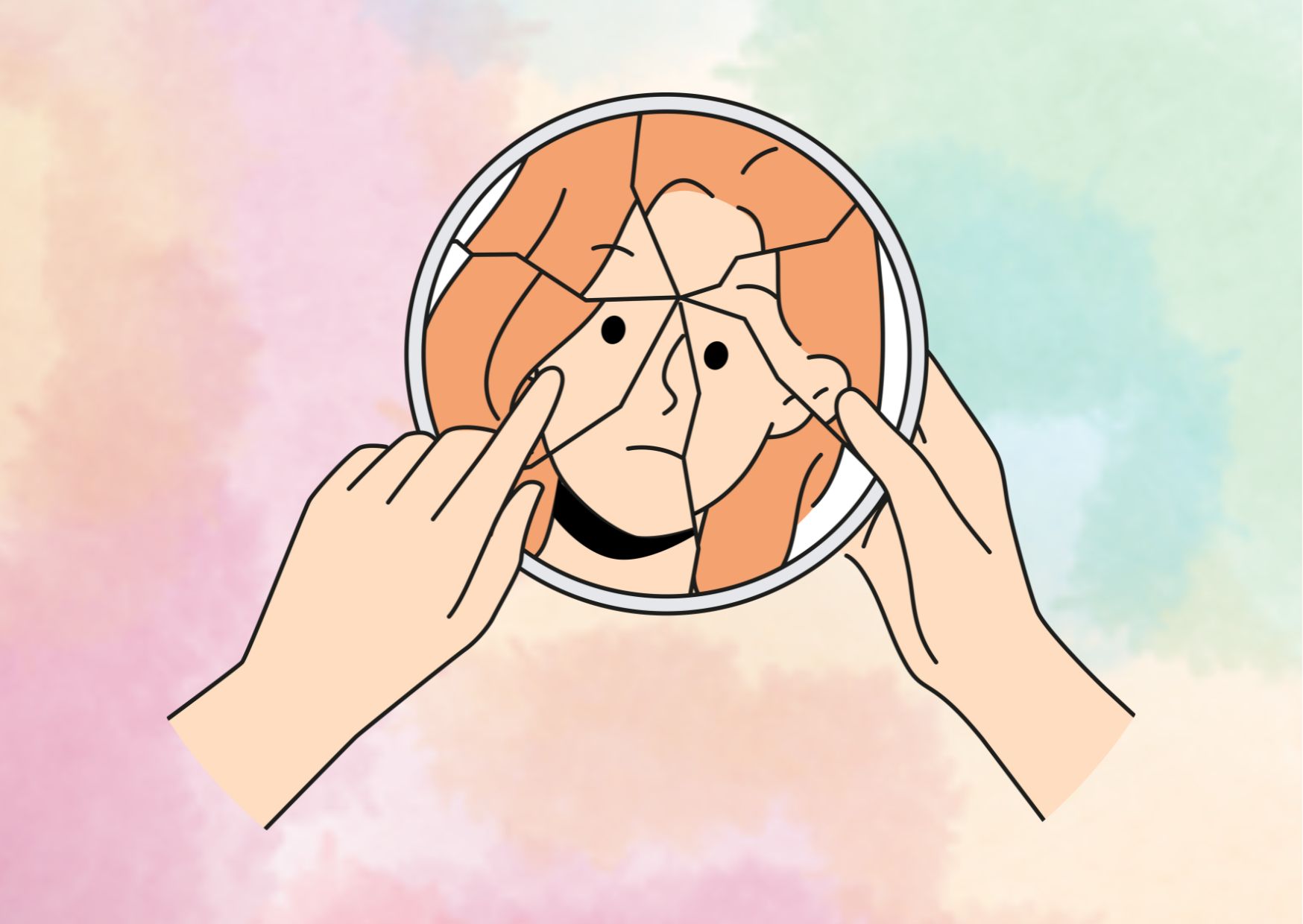- Practical Applications of Mindfulness for Self-Acceptance:
-
- Daily Mindfulness Meditation: Start or end your day with a 10-minute mindfulness meditation focusing on breath and bodily sensations. This practice helps anchor you in the present moment, fostering an awareness that is both accepting and non-reactive.
- Mindful Observation: Dedicate a few minutes each day to observe your surroundings without judgment. Whether it’s noticing the intricate patterns of a leaf or the bustling sounds of the city, this practice cultivates a sense of wonder and acceptance of the present moment.
- Mindful Eating: Transform meals into an exercise of mindfulness by paying close attention to the taste, texture, and aroma of your food. This not only enhances the dining experience but also encourages a healthier relationship with food and body image.
- Benefits of Mindfulness in Promoting Self-Acceptance:
-
- Increased Self-Esteem: Studies have shown a moderate positive correlation between mindfulness and self-esteem. By fostering non-reactivity to inner experiences, mindfulness helps individuals appreciate their worth and capabilities.
- Enhanced Self-Efficacy: Regular mindfulness practice can lead to a greater understanding of one’s mental processes, empowering individuals with the confidence to tackle challenges and embrace growth opportunities.
- Transformation Through Self-Love: Embracing mindfulness encourages individuals to see themselves and their lives without the filters of judgment and criticism. This acceptance is a critical step towards practicing self-love, which in turn, can dramatically improve self-perception and confidence.
- Mindfulness Strategies for Overcoming Negative Self-Perception:
-
- Recognize and Replace Negative Self-Talk: Use mindfulness to catch critical thoughts as they arise. Challenge their validity and replace them with positive affirmations that reflect your true strengths and achievements.
- View Mistakes as Learning Opportunities: Adopting a mindful attitude helps in perceiving mistakes not as failures but as valuable lessons. This shift in perspective reduces self-blame and fosters a growth mindset, crucial for personal development.
- Cultivate a Growth Mindset: Mindfulness encourages openness to new ideas and perspectives. By understanding that abilities and intelligence can be developed with effort, individuals can overcome mental roadblocks and embrace personal growth.
Incorporating mindfulness into daily routines can significantly influence one’s journey towards self-acceptance. By fostering a mindset that welcomes all thoughts and feelings without judgment, mindfulness lays the foundation for a healthier self-perception and a more fulfilling life.
Building a Supportive Community
Building a supportive community is pivotal in navigating the challenges of self-perception and mental health. Here’s how a strong community impacts personal development:
- Reduced Stress and Anxiety:
-
- Individuals with a robust support network experience fewer stress and anxiety levels, providing a safe space for expression and understanding.
- Continuous Learning and Skill Development:
-
- Communities are hubs for sharing knowledge and skills, fostering continuous personal and professional growth.
- Boost in Self-Confidence and Self-Esteem:
-
- Being part of a supportive group enhances self-confidence and self-esteem by affirming one’s value and contributions.
- Empathy and Open-Mindedness:
-
- Engaging with diverse backgrounds within a community enriches empathy and broadens perspectives, essential for personal growth.
- Accountability for Goals:
-
- Community members often hold each other accountable, encouraging progress towards shared and individual aspirations.
- Networking and Belonging:
-
- Communities offer invaluable networking opportunities, fostering a sense of belonging and significantly impacting personal and professional trajectories.
- Guidance, Mentorship, and Encouragement:
-
- Meaningful relationships within the community provide ongoing support, helping individuals recognize their strengths and navigate challenges.
- Emotional and Mental Health Support:
-
- Strong relationships are foundational to emotional stability, offering security, trust, and encouragement through life’s ups and downs.
- Learning from Each Other:
-
- Community interactions are opportunities for mutual learning, offering fresh insights and perspectives that challenge and inspire growth.
- Volunteering and Empathy:
-
- Community service not only enriches the giver but also strengthens communal bonds, enhancing empathy through shared experiences and objectives.
- Skill Enhancement through Volunteering:
-
- Volunteering within the community is an avenue for developing skills like leadership, communication, and teamwork, applicable in both personal and professional contexts.
-
- Community engagement promotes respect and appreciation for various cultures and lifestyles, enriching one’s understanding and acceptance of differences.
- Improved Mental Well-Being:
-
- The positive emotions, social interactions, and sense of purpose derived from community involvement contribute significantly to mental well-being.
Communities, therefore, are not just groups of people. They are the bedrock of support, learning, and personal evolution, offering a network where individuals can find guidance, inspiration, and a sense of belonging. Through shared experiences and goals, communities help individuals navigate the complexities of life, fostering personal growth, and well-being.
Celebrating Personal Achievements
Celebrating personal achievements, whether they be milestones like the victory of France in the 2022 World Cup or individual accomplishments such as receiving the Golden Boot award by Antoine Griezmann, plays a crucial role in boosting motivation, confidence, and even an organization’s reputation. It’s essential to recognize both measurable achievements and less tangible behaviors in a manner that’s meaningful to the recipient. Here are some tailored ways to celebrate achievements:
Personalized Celebration Ideas:
- Just Say It: A simple “well done” can go a long way. Personal emails or face-to-face compliments are effective and heartfelt.
- Share Success Stories: Utilize newsletters, social media, or team meetings to highlight achievements.
- Give a Gift: Consider personal preferences, from cash bonuses to experience vouchers or even a thoughtful bouquet of flowers.
- Social Gatherings: Whether it’s a meal out with the team or a more intimate dinner with loved ones, socializing enhances the celebratory spirit.
- Special Treats:
-
- Spa Treatment: A luxurious spa day can be a unique way to indulge.
- Dinner at a Special Place: Choose a dining experience that offers a “wow” factor.
- Leave Town: A short getaway can provide a refreshing change of scenery and pace.
Incorporating Self-Care and Gratitude:
- Reflect and Be Thankful: Take a moment to acknowledge your hard work and the journey to your achievement.
- Practice Gratitude: Expressing thanks to those who supported you not only shares the joy but also strengthens relationships.
- Self-Care: Engage in activities that relax and rejuvenate you, from playful activities with family and friends to booking a special spa treatment.
Creative and Spontaneous Ways to Celebrate:
- Get Creative with Celebrations: Dance, sing, or engage in a hobby that brings you joy.
- Be Spontaneous: Do something completely out of the ordinary to mark the achievement.
- Future Planning: Put a deposit down on a future experience, giving you something exciting to look forward to.
Celebrating personal achievements is more than just acknowledging success; it’s about creating moments of reflection, gratitude, and joy that propel us towards our next goals. Tailoring celebrations to individual preferences and incorporating acts of self-care and gratitude not only make these moments memorable but also reinforce the positive impact of our accomplishments.
Conclusion
Navigating the intricate maze of “people better than me” mentality and embracing self-awareness, gratitude, and community has unravelled as an essential journey towards mental well-being and self-acceptance. Throughout this exploration, we’ve dissected the roots of negative self-comparison, the pervasive influence of social media, imposter syndrome, and effective strategies for combatting these challenges. Emphasizing a multifaceted approach involving mindfulness, fostering supportive communities, and celebrating individual success underscores the notion that overcoming feelings of inadequacy is not a solitary battle but a communal endeavor enriched through shared experiences and collective wisdom.
The path to better mental health and heightened self-esteem lies in transforming our perceptions and interactions with ourselves and the world around us. Acknowledging our accomplishments, embracing our unique journeys without succumbing to destructive comparisons, and nurturing environments of empathy and encouragement are steps towards not just surviving, but thriving. As we journey onwards, let us carry the lessons of kindness, growth mindset, and the power of community support as beacons of hope, steering us away from the shadows of self-doubt towards a brighter, more self-assured horizon.
FAQs
Q: What strategies can I use to handle feelings of inadequacy when others seem more accomplished? A: Focus on your personal growth rather than making comparisons with friends or peers. Understand that others’ successes don’t diminish your own achievements. Strive to improve yourself continually without using others as your benchmark.
Q: How can I stop believing that everyone else is superior to me? A: Here are five steps to help you overcome feelings of inferiority:
- Acknowledge that everyone’s journey is unique.
- Remember that difficult times enhance the good ones.
- Maintain a strong work ethic.
- Continuously set new challenges for yourself.
- Reflect on the progress you’ve made so far.
Q: Is there a term for the belief that others are more capable than oneself? A: This feeling is known as Imposter Syndrome. It’s the persistent belief that one is not as competent as others perceive them to be and fears being exposed as a fraud. This syndrome is commonly associated with high-achieving individuals and is seen in both women and men.
Q: What should I do if someone thinks they are superior to me? A: If you encounter someone who believes they are better than you, it’s best to let them hold that belief. Avoid dwelling on their opinions or actions. Instead, focus on your work and be consistent in your efforts. Ignoring such attitudes, especially if the person is not open to other perspectives, is often the best policy.
At Inquire Talk, we understand the significance of mental health and well-being in fostering healthy relationships. Our dedicated team of therapists offers online counselling, therapy, and psychotherapy services to individuals seeking support and assistance. Whether you’re looking for guidance in your dating life, improving relationships, or simply need someone to talk to, our compassionate therapists are here to help. Visit our website to learn more about our services and take the first step towards a healthier and happier you.
Here are few certified therapists who you can get in touch and book a therapy session with:
Laura Dee
Natalie Mills
Sophie Barrett

